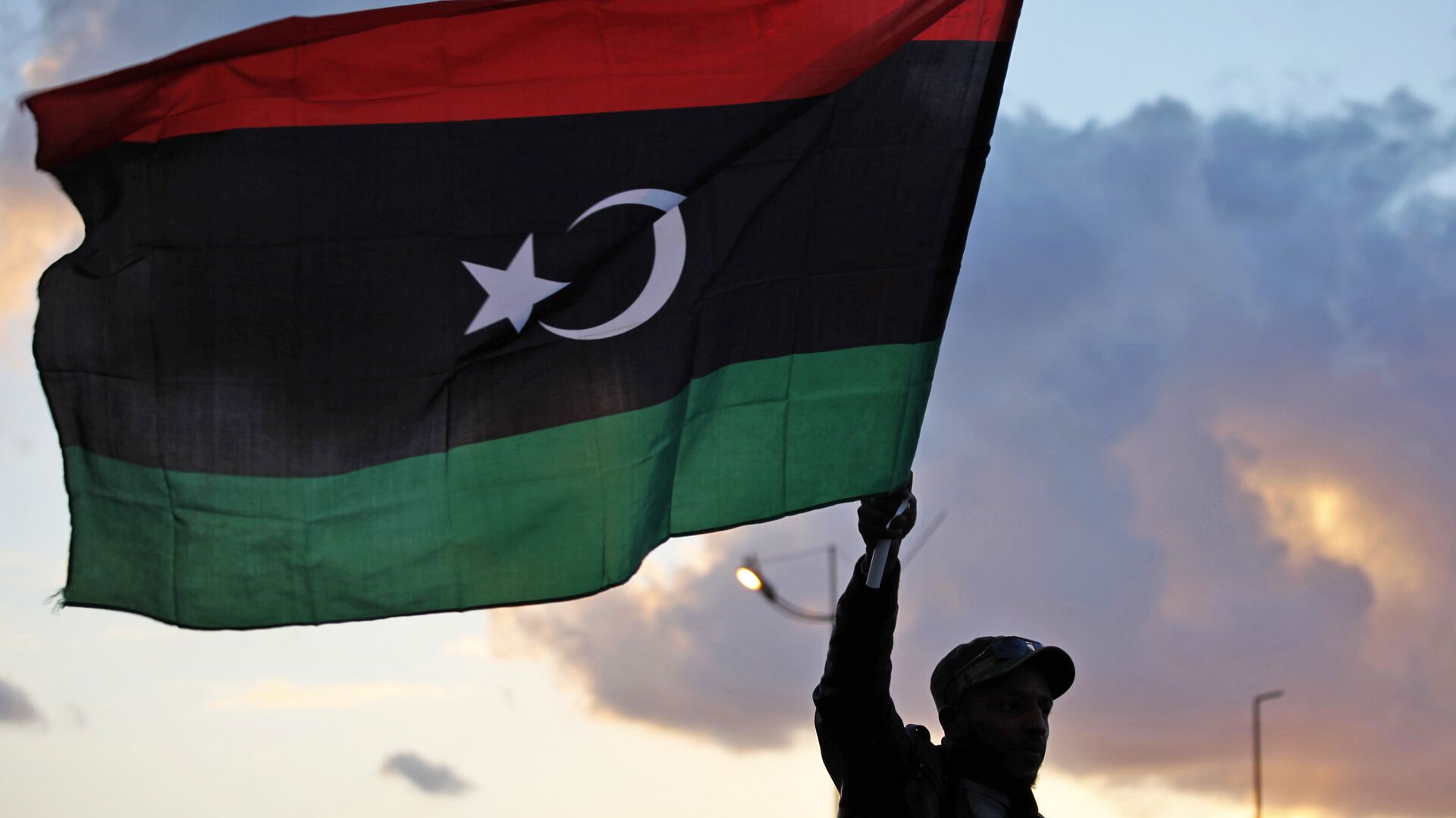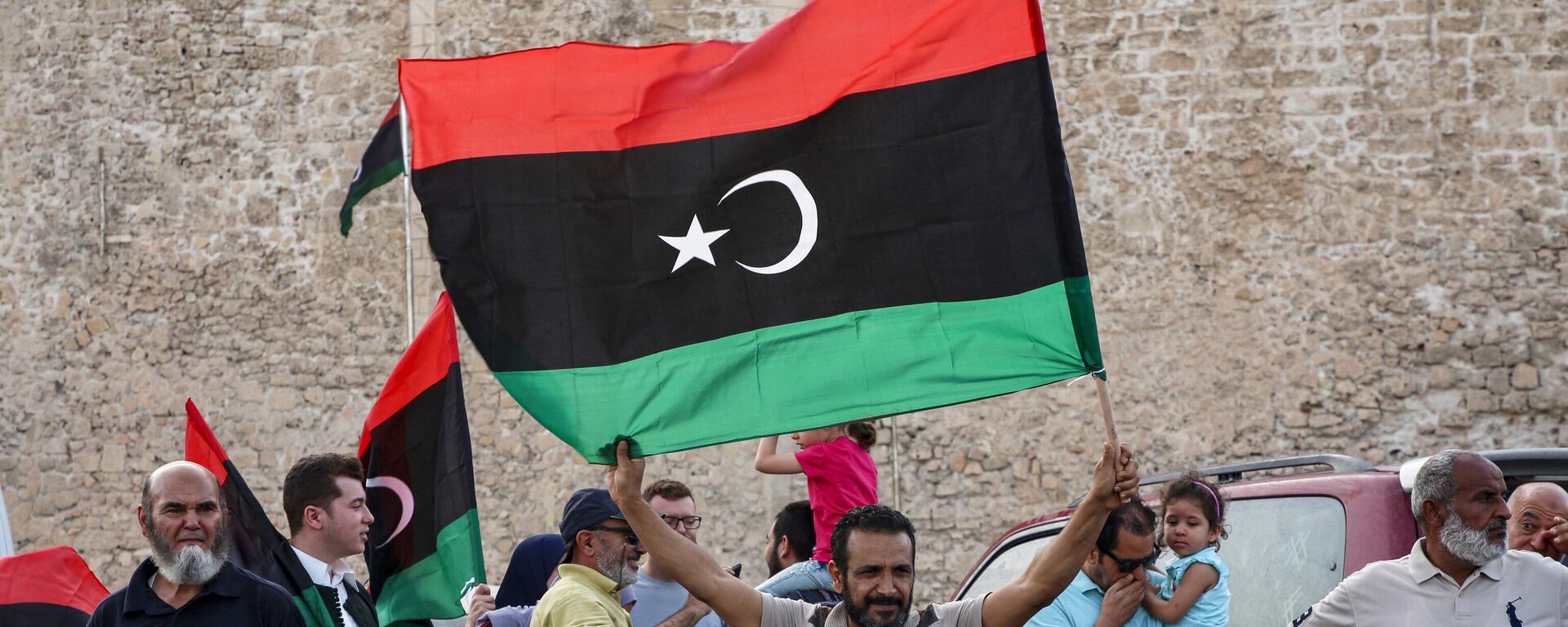https://en.sputniknews.africa/20231127/libyan-high-state-council-head-vows-to-attend-un-arranged-talks-of-political-stakeholders-1063819851.html
Libyan High State Council Head Vows to Attend UN-Arranged Talks of Political Stakeholders
Libyan High State Council Head Vows to Attend UN-Arranged Talks of Political Stakeholders
Sputnik Africa
TUNIS (Sputnik) - Libya is currently ruled by two rival governments. The western part of Libya is controlled by the UN-backed Government of National Accord... 27.11.2023, Sputnik Africa
2023-11-27T17:39+0100
2023-11-27T17:39+0100
2023-11-27T17:39+0100
libya
united nations (un)
north africa
politics
https://cdn1.img.sputniknews.africa/img/103699/77/1036997758_0:165:3497:2132_1920x0_80_0_0_72bd806e14481a974ed4530cf40a7cf0.jpg
The chairman of the Libyan Tripoli-based High Council of State, Mohamed Tekala, told Sputnik on Monday he would participate in the upcoming meeting of representatives of Libya's main political forces under the auspices of the United Nations. Last week, the UN Mission in Libya invited key Libyan institutional stakeholders to attend a meeting to reach a settlement on the issues related to the electoral process in the country. Those invited included Tekala, as well as the speaker of the House of Representatives, Aguila Saleh Issa, the chairman of Libya's Presidential Council, Mohamed al-Menfi, the commander of the Tobruk-based Libyan National Army, Field Marshal Khalifa Belqasim Omar Haftar, and Government of National Unity head Abdul Hamid Dbeibeh. Last week, Saleh told Sputnik that he was against Dbeibeh's Government of National Unity taking part in the meeting. The term of office of Dbeibeh's government has expired, and "he is not considered a prime minister," Saleh said. Libya's High Council of State was formed in 2015 under the terms of the Libyan Political Agreement. It is an advisory body and performs parliamentary functions in the western part of the country. In eastern Libya, the House of Representatives, whose speaker is Saleh, plays the role of a parliament.
https://en.sputniknews.africa/20231124/libyan-parliament-agrees-on-steps-on-forming-govt-holding-elections-with-un-speaker-states-1063762727.html
libya
north africa
Sputnik Africa
feedback@sputniknews.com
+74956456601
MIA „Rossiya Segodnya“
2023
Sputnik Africa
feedback@sputniknews.com
+74956456601
MIA „Rossiya Segodnya“
News
en_EN
Sputnik Africa
feedback@sputniknews.com
+74956456601
MIA „Rossiya Segodnya“
Sputnik Africa
feedback@sputniknews.com
+74956456601
MIA „Rossiya Segodnya“
libya, united nations (un), north africa, politics
libya, united nations (un), north africa, politics
Libyan High State Council Head Vows to Attend UN-Arranged Talks of Political Stakeholders
TUNIS (Sputnik) - Libya is currently ruled by two rival governments. The western part of Libya is controlled by the UN-backed Government of National Accord, based in Tripoli, while the eastern part is under the Government of National Stability, backed by the Libyan National Army.
The chairman of the Libyan Tripoli-based High Council of State, Mohamed Tekala, told Sputnik on Monday he would participate in the upcoming meeting of representatives of Libya's main political forces under the auspices of the United Nations.
Last week, the UN Mission in
Libya invited key Libyan institutional stakeholders to attend a meeting to reach a settlement on the issues related to the electoral process in
the country. Those invited included Tekala, as well as the speaker of the House of Representatives, Aguila Saleh Issa, the chairman of Libya's Presidential Council, Mohamed al-Menfi, the commander of the Tobruk-based Libyan National Army, Field Marshal Khalifa Belqasim Omar Haftar, and Government of National Unity head Abdul Hamid Dbeibeh.
"Any dialogue at the negotiating table is better for us than a dialogue with arms. Therefore, we welcomed that initiative and agreed to it. We will be present at the negotiating table. Whether any of the other parties accepts the invitation, it is their business. Everyone is responsible only for themselves," Tekala said.
Last week, Saleh told Sputnik that he was against Dbeibeh's Government of National Unity taking part in the meeting. The term of office of Dbeibeh's government has expired, and "he is not considered a prime minister," Saleh said.
Libya's High Council of State was formed in 2015 under the terms of the Libyan Political Agreement. It is an advisory body and performs
parliamentary functions in the western part of the country. In eastern Libya, the House of Representatives, whose speaker is Saleh, plays the role of a parliament.


